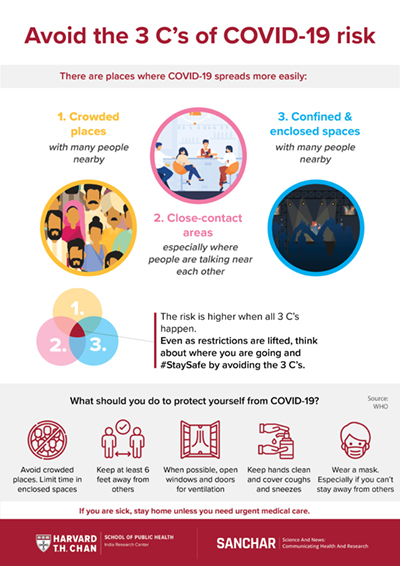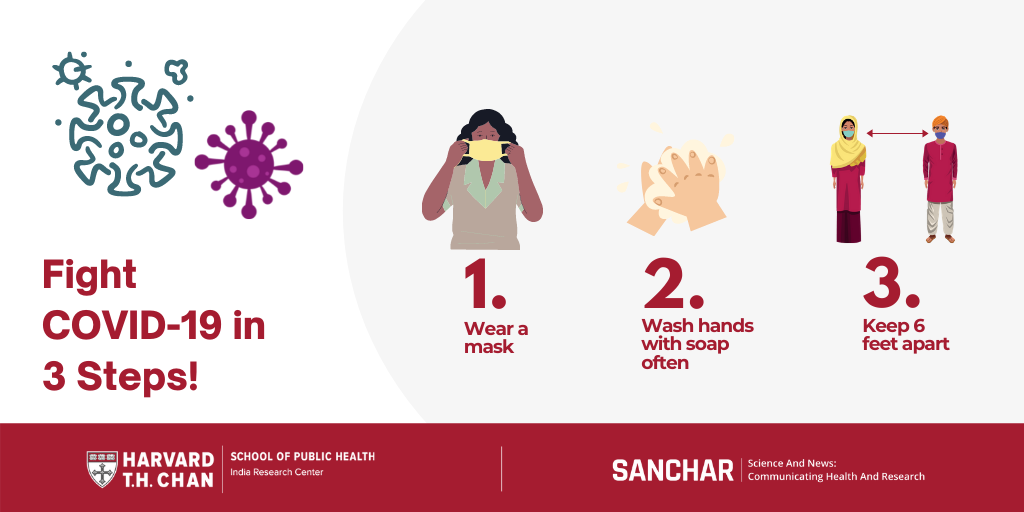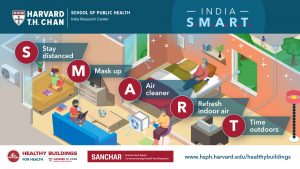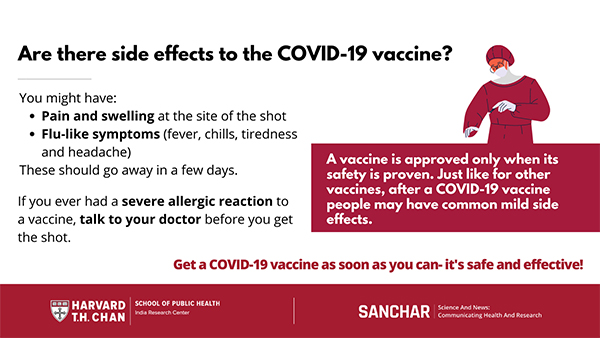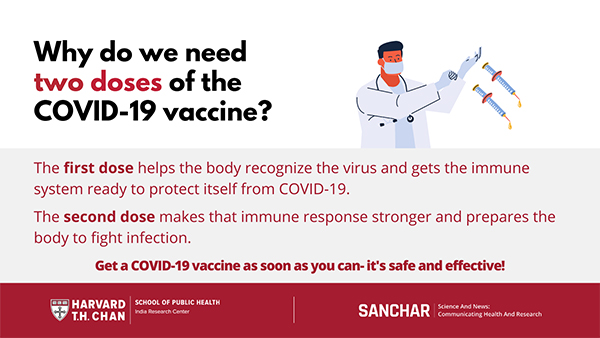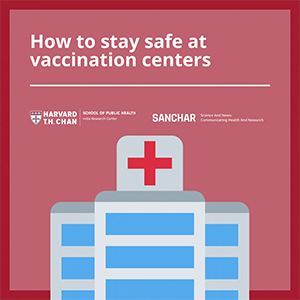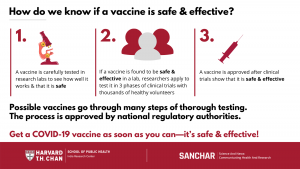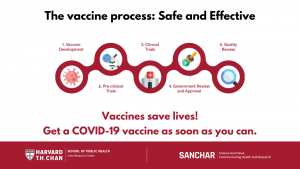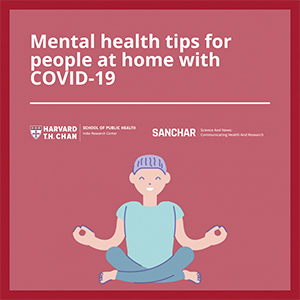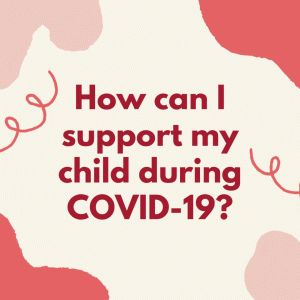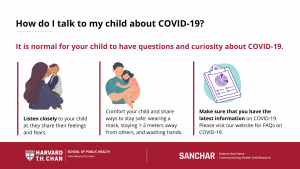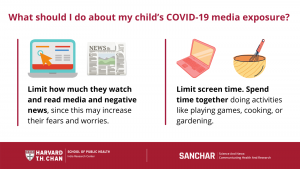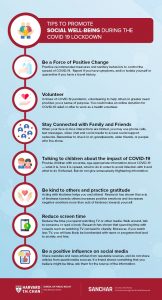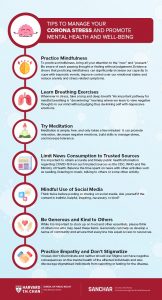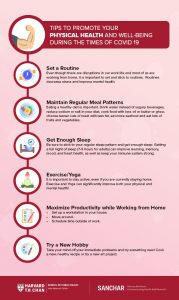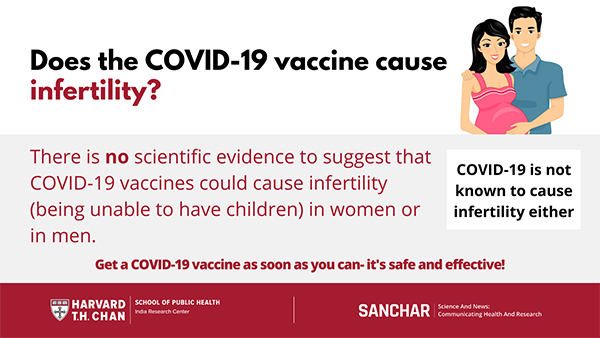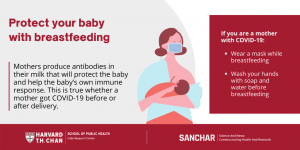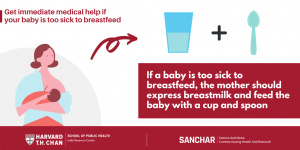Infographics and Resources
Updated August 4, 2021
In a time of information overload, it is difficult to discern between misinformation, disinformation and credible reliable information. Here, Project SANCHAR and the Harvard T.H. Chan School of Public Health – India Research Center aim to provide partners, affiliates, and citizens with shareable easy-to-understand infographics on COVID-19 prevention and mitigation, on home-based care, and maintaining physical and emotional wellbeing. These infographics allow users to access and disseminate “evidence-based” accurate information.
اب اردو میں کووڈ-19 وسائل برائے ہندوستان: سالوشن کا حصہ بنیں- مواصلات پر عمل درآمد کا ہدایت نامہ
(اردو میں پی ڈی ایف ڈاؤنلوڈ کریں۔)
अब हिंदी में “भारत के लिए कोविड-19 के साधन: समाधान का हिस्सा बनिए” – एक संवाद कार्यान्वयन गाइड – प्रोजेक्ट संचार और हार्वर्ड टी.एच. चैन स्कूल ऑफ पब्लिक हेल्थ – इंडिया रिसर्च सेंटर के द्वारा
(हिंदी में पीडीएफ के लिए क्लिक करें)
UPDATED “COVID-19 Resources for India: Be a Part of the Solution” – A Communication Implementation Guide (2nd Edition)
developed by Harvard T.H Chan School of Public Health- India Research Center and Project SANCHAR (Go To PDF)
You can download the following infographics by right-clicking on them and selecting “Save Image As” option. Feel free to use and share on social media, WhatsApp and in-person. #COVIDFreeIndia
Section 1: COVID-19 Prevention and Control
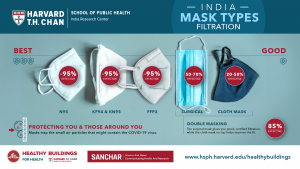
Masks trap the small air particles that might contain the COVID-19 virus. Protect yourself and others by wearing your mask(s) and encouraging your friends and family to do the same!
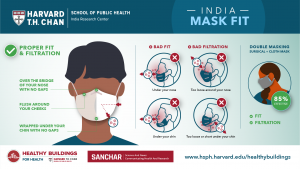
Understand how masks should fit for best protection. Protect yourself and others by wearing your mask(s) and encouraging your friends and family to do the same!
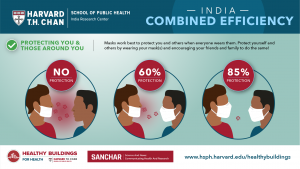
Masks work best to protect you and others when everyone wears them. Protect yourself and others by wearing your mask(s) and encouraging your friends and family to do the same!
Section 2: Home-Based Management
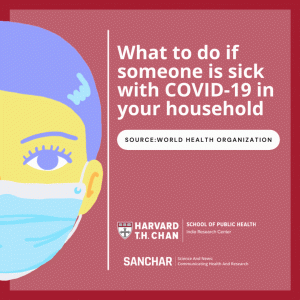
Click to Play Use these tips to keep yourself and your family safe if someone in your household is sick with COVID-19
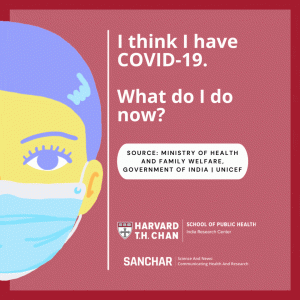
Click to Play If you think you have COVID-19, follow these simple safety tips to stop the spread and keep others safe.
Section 3: Vaccines and Vaccinations
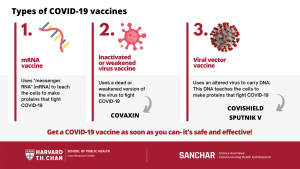
All vaccines are safe and help protect you from COVID-19. Vaccines use different mechanisms to keep you safe
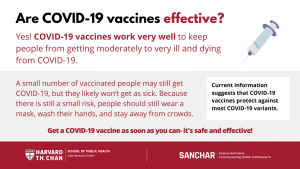
All approved COVID-19 vaccines are effective against COVID-19 and help prevent infection, severe illness & death
Section 4: Mental Health and Wellbeing
Section 5: Ventilation and Healthy Buildings
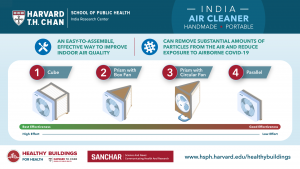
Filters can remove substantial amounts of particles from the air and reduce exposure to airborne COVID-19. You can make one for your room and protect yourself and your household members.
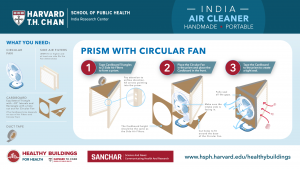
Reduce your indoor exposure to COVID-19. Learn how to make a portable do-it-yourself prism air cleaner with a circular fan to remove contaminants such as viruses from the air.
Section 6: Guides for Women and Children
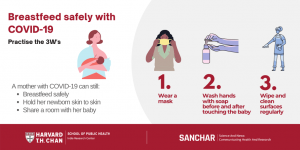
Breastfeeding your child is important. Learn how to safely breastfeed your child even when you have COVID-19.
Global Resources:
India:
This material was curated by Viswanath Lab of Harvard Chan School of Public Health and the Dana-Farber Cancer Institute (DFCI) with the help of the Health Communication Core of Dana-Farber/Harvard Cancer Center (DF/HCC) and the Harvard T.H Chan School of Public Health- India Research Center. These are not the official views of Harvard Chan or DFCI. For any questions, comments or suggestions reach out to rpinnamaneni@hsph.harvard.edu.


